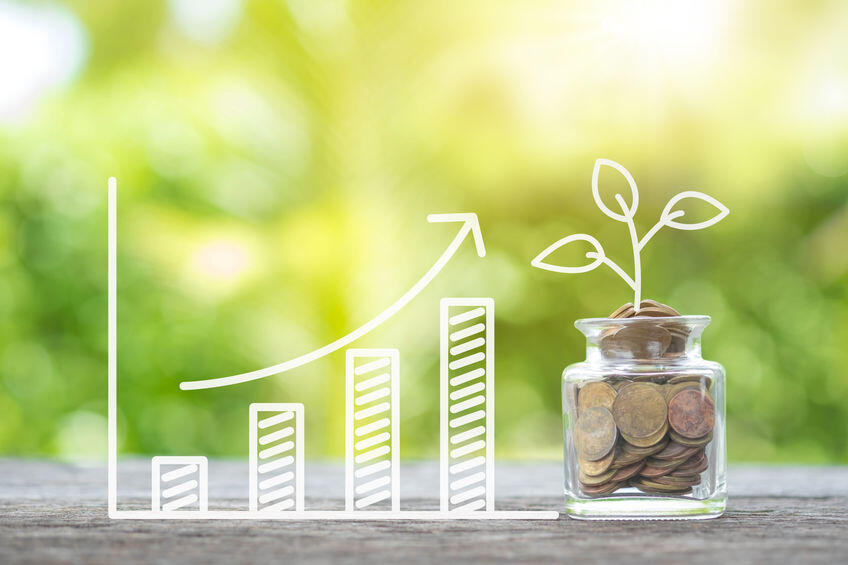If you have a propensity to overspend or if you find yourself in a position where you must use a credit card to pay for basics, you may quickly find yourself in over your head financially. When interest rates are sky-high and monthly payments are prohibitive, however, paying off debt may be a real challenge. When you have many bills that you just can’t afford to pay off, and you feel like you’re in a hopeless rut, a personal loan for debt consolidation may be a good option to help you get out of that rut and start making real progress toward paying off your obligations.
The Process of Consolidating Debt
A debt consolidation loan is a loan for a predetermined sum, often the whole amount of existing debt plus fees and interest. After loan approval, most financial institutions will pay your debtors directly, requesting information about them and the amount you intend to pay. The money might also be put directly into your bank account; after all your obligations have been paid off, you’d just have to make a single monthly payment to your debt consolidation lender.
Interest is required to be paid on a loan, however the average annual percentage rate (APR) for a personal loan is now approximately 12%, while the average APR for a credit card is around 20% (based on independent research). Most loans have maturities ranging from six months to seven years, and interest is often included into the monthly payment and amortised during that period. Although your monthly payment would be lower for a longer loan period, you will ultimately pay more in interest, therefore it’s always preferable to go for the shortest term that you can comfortably afford.
There are some no-cost choices with various interest rates accessible according on your credit score, but other lenders additionally charge an application or origination fee. If you need a personal loan, look for one that won’t cost you too much in fees, and read over the fine print thoroughly before signing anything. Consolidating your debt may help you qualify for a cheaper interest rate, saving you hundreds or even thousands of dollars over the life of the loan. Remember that even if the new interest rate isn’t noticeably lower than your existing one, some savings are better than none.
You might start thinking that you can make debt repayments more quickly.
One additional benefit of a reduced interest rate on one’s debt is the opportunity to reduce that sum more quickly. Borrowers may feel like their whole monthly payment goes toward interest when the interest rate is high, but they may be able to put more money toward the principle if the interest rate is lower. If you can afford to pay only $50 more each month, it will significantly reduce the total length of time it takes you to eliminate your debt.
If this is your intention with debt consolidation, you should look into getting a personal loan that doesn’t have prepayment penalties, which are costs for paying off the loan before it’s due. The amount of a prepayment penalty varies from loan to loan and can be expressed as a percentage of the loan total, the amount of interest the lender would have earned except for the prepayment, or a flat fee.
Not only can debt consolidation help you save money, it can also help you feel more financially organised. When you apply for a debt consolidation loan, the lender will send the funds to your creditors to pay off those balances, so the only monthly payment you’ll be making is for the loan itself.
Having just one monthly payment instead of several can help ease the pressure of having to remember to make multiple payments each month before their due dates, which can be especially stressful if you don’t have an Autopay option set up. Remember, if you do miss a payment or if it is late, the lender may report this to the credit bureaus, which could result in your credit score taking a hit.
You may not get approved for a lower interest rate
The interest rate you receive for any new loan or line of credit will depend on your credit score and credit report. Generally, a higher credit score will allow you to qualify for lower interest rates, while a lower credit score will land you higher interest rates. It’s also a good idea to not apply for a new loan if you’ve recently applied for other lines of credit since too many hard inquiries on your credit report can lower your credit score and lead to higher interest rates. Personal loan and debt consolidation lenders do accept applicants with less than ideal credit scores — while you’ll be approved for the loan, you’ll likely receive a higher interest rate if your credit score is on the lower side.
Debt consolidation works best when you are able to receive an interest rate that’s lower than the rates you’re paying for your current debts. Many lenders allow you to check what rate you’d be approved for without hurting your credit score so you can make sure you’re okay with the terms before signing on the dotted line.
Debt Snowball Strategy
If you are not comfortable with the interest rate you’ll receive for your debt consolidation loan, you might want to consider using the debt snowball method instead, which entails paying more toward your debt with the lowest balance while paying just the minimum on all your other debts. Once that debt is paid off, you can move onto the second lowest balance and repeat the process until you’re debt-free. This process allows you to knock out one debt faster, which can make you feel more accomplished and motivated to keep tackling the others. You can face additional damage from late payments
Credit Score Protection
As with any form of credit or loan, late or missed payments have the potential to hurt your credit score. Remember that any time you apply for a new loan or line of credit, you’re opening up a hard inquiry on your credit report, and as a result, your credit score will be temporarily lowered.
Skipping a payment or making a late one on top of that can result in an even lower credit score. Many lenders will also charge extra fees for missing or late payments, which can end up making your debt consolidation process feeling even more costly.
To avoid the potential for missing or late payments, make sure you are enrolled in direct debit for your debt consolidation loan. That way, your monthly payments will be automatically deducted from your bank account prior to the due date and you won’t have to worry about accidentally missing one.
Debt consolidation won’t keep you out of debt
Lastly, while consolidating your debt may help you to pay it off faster, the loan itself won’t keep you out of the debt cycle. Many borrowers mistakenly believe debt consolidation doesn’t work for them because shortly after becoming debt-free, they fell back into old habits and eventually, more debt.
Summary
Debt consolidation itself is just another tool meant to alleviate multiple high-interest monthly payments. It’s important to figure out what causes you to go into debt in the first place. According to financial expert and author Paco de Leon, many people may have certain root causes, like overspending when they’re stressed out, which push them to rack up credit card debt they’re unable to pay off. It can be really helpful to speak to a financial therapist or a financial advisor if you’re having trouble keeping the debt away.


















